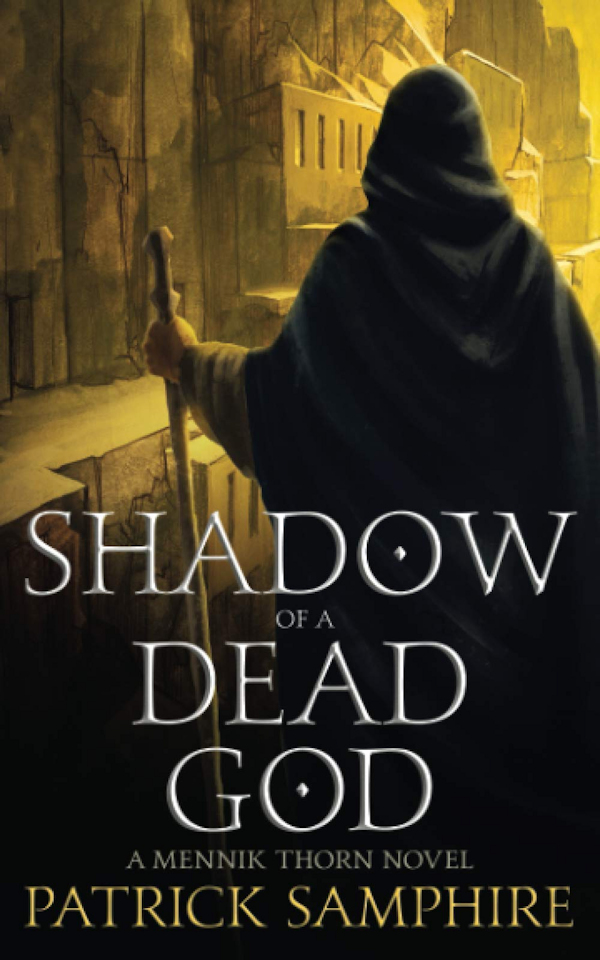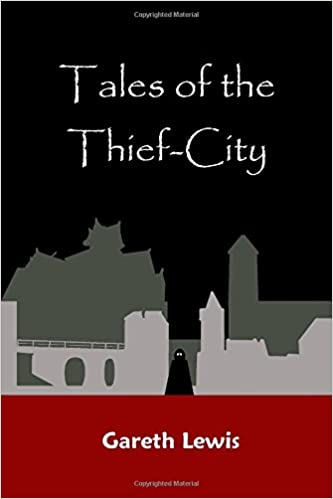
When we began posting our semi-finalist reviews at the beginning of this week, we didn’t know which book we would be sending on to the finals of the sixth annual Self-Published Fantasy Blog-Off. In fact, the deliberations went on until late Thursday evening for our US team members, early Friday morning for the Europeans in our group, and disrupted Friday work hours for the folks in Asia, Australia, and New Zealand (it’s an international team)!
Based on scores alone, we were able to set aside our third and fourth place books. Much as we liked these books, the need to choose only one finalist forced us to immediately eliminate these two semi-finalists.
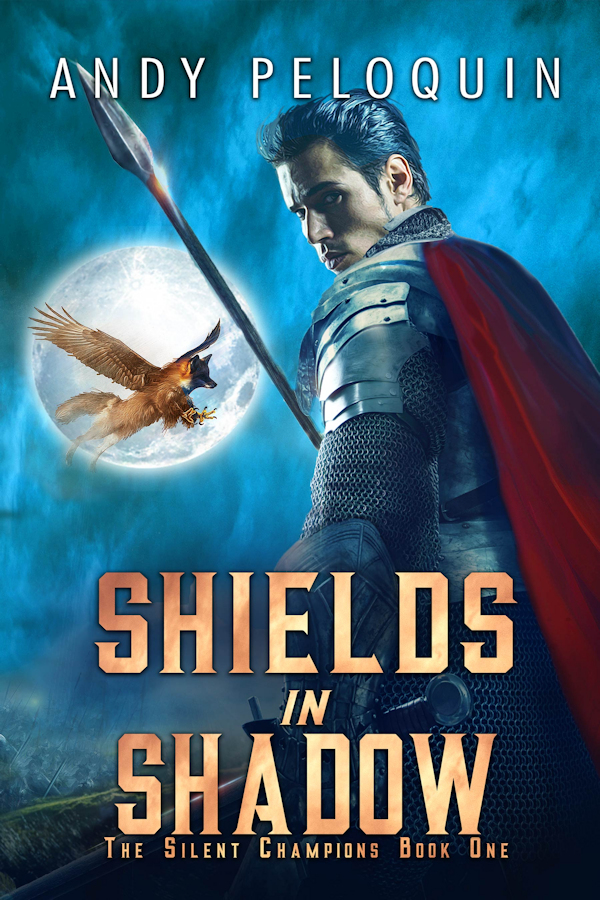
Shields in Shadow by Andy Peloquin
Forth Place
Score: 7.5
Review Here
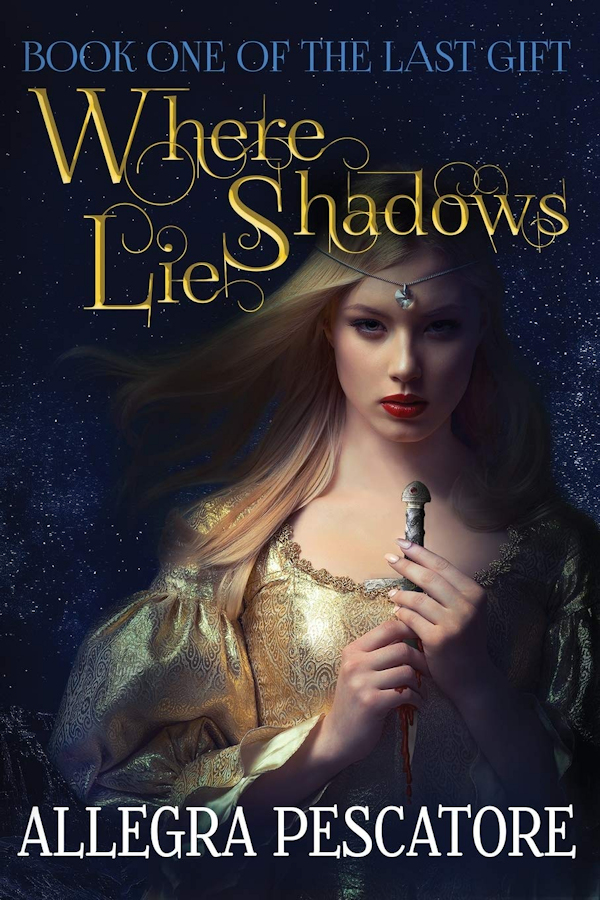
Where Shadows Lie by Allegra Pescatore
Third Place
Score: 7.9
Review Here
However, our top two titles were tied.
Shadow of a Dead God by Patrick Samphire
Score: 8.1
Review Here
Tales of the Thief-City by Gareth Lewis
Score: 8.1
Review Here
This posed quite the dilemma.
Both books happen to feature noir detectives who develop a fatherly relationship with a wise-cracking young woman while the mystery deepens around them. After these superficial similarities, however, the books couldn’t differ more. Shadow of a Dead God is about an aging mage falsely accused of murder, who must track down the real killer in a classical city-state not unlike ancient Rome or Athens. The story takes familiar tropes and presents them in a standard mystery thriller format, although the fantasy setting and high-quality writing keep things fresh and exciting.
Tales of the Thief-City is a portal fantasy that uses the familiar archetype of the jaded detective to bring us into a crazy world where angels mingle with mobsters, fairies, and robots. There is murder and mayhem, but the central mystery of Thief-City is a cerebral one that reveals itself over a series of self-contained vignettes rather than traditional novel chapters.
The books also differ in reputation, and Shadow of a Dead God was a safe bet to do well. Although it was only published in May of this year, it already had a good deal of buzz as we kicked things off last June. In less than six months, it’s garnered 71 ratings on Goodreads, with an average of 4.3. In contrast, Tales of the Thief-City was published 5 years ago but didn’t have a single rating before May of this year. Currently, it has only two Goodreads ratings, with an average of 3.5.
All in all, Dead God is polished gem that would measure well against the best of traditionally published novels. Thief-City is also a diamond, but a rough one, just dug out from deep under the self-published mountain. Its design and editorial need some spiffing up, and its unusual structure and style may not suit everyone. As a team, we discussed these attributes at length. Dead God seemed the obvious choice. The expected choice. Dead God was the title that would probably fare best in the finals, and for a while, the winds of opinion favored it. Yet, Thief-City was the book people couldn’t get out of their heads. Team member Kartik Narayanan summed it all up:
“SoaDG is more likely to be accepted. It has a comfortable narrative and structure. But I doubt it will stick in one’s mind since there are books that used a similar formula before. For example, K. J. Parker’s Sixteen Ways to Defend a Walled City—same snarky wit, fighting against the odds, etc. SoaDG is the safe choice. It has a higher chance of winning than TC. But a couple of years from now, TC will continue to be in my immediate recall, and I think TC deserves the recognition. It is the better story overall. It is original and has taken quite a few risks in its storytelling. I liked both books, but I will have to go with the ‘Indie’s Indie.’”
We also discussed whether, as collection of stories, Thief-City met the criteria of the competition, which disallows “anthologies” and “short stories.” As there was disagreement on this point, we turned to Mark Lawrence, the organizer of the competition, for clarification. He indicated that by “anthology” he meant a collection of unrelated stories, and the short story exclusion referred to single short stories. The twleve tales in Thief-City are clearly related as they all include the same first-person narrator, a key secondary character who appears in most, and several recurring characters. Moreover, events occur in sequence; earlier events have bearing on later ones. Actions have consequences over the full course of events, and there is a clear trail from problem to resolution across the book.
Beyond the structural innovation, the uniqueness and originality of Thief-City thrilled the judges. In the words of Kerry Smith and Lynn Kemper:
Kerry: “After 40 years reading fantasy, it’s exciting to find something different.”
Lynn: “I’m pushing close to 50 years reading, and uniqueness is my jam.”
In sum, Tales of the Thief-City is both incredibly inventive and memorable (features which, if you read the book, you will see are totally meta).
And yet…however amazing Thief-City is, and however much we hope people—everyone, in fact—will immediately go purchase a copy and see for themselves how brilliant this book is, it does have some drawbacks. The text is not as clean nor the production values as slick as as the other entrants in the contest. And although most of the team agreed the tales contained within this book did indeed constitute a novel, we discussed whether other blogs would see it that way. Most of all, we worried that the book might not be judged on its merits but rather on whether or not it fit into the narrow box some would label novel (irony alert), and we did not want to see it torpedoed by bad reviews for this reason alone.
Therefore, after a lot of debate and discussion, we decided to put Shadow of a Dead God forward as the finalist in the SPFBO. All the judges agree that Dead God is the book with the best chance of winning the competition, and we can’t wait for an even wider audience to experience all its twists and turns.
We wish Gareth Lewis, Allegra Pescatore, and Andy Peloquin the best of luck and much success with their excellent books, and we hope to see Patrick Samphire honored with the Selfie Stick at the end of April 2021.
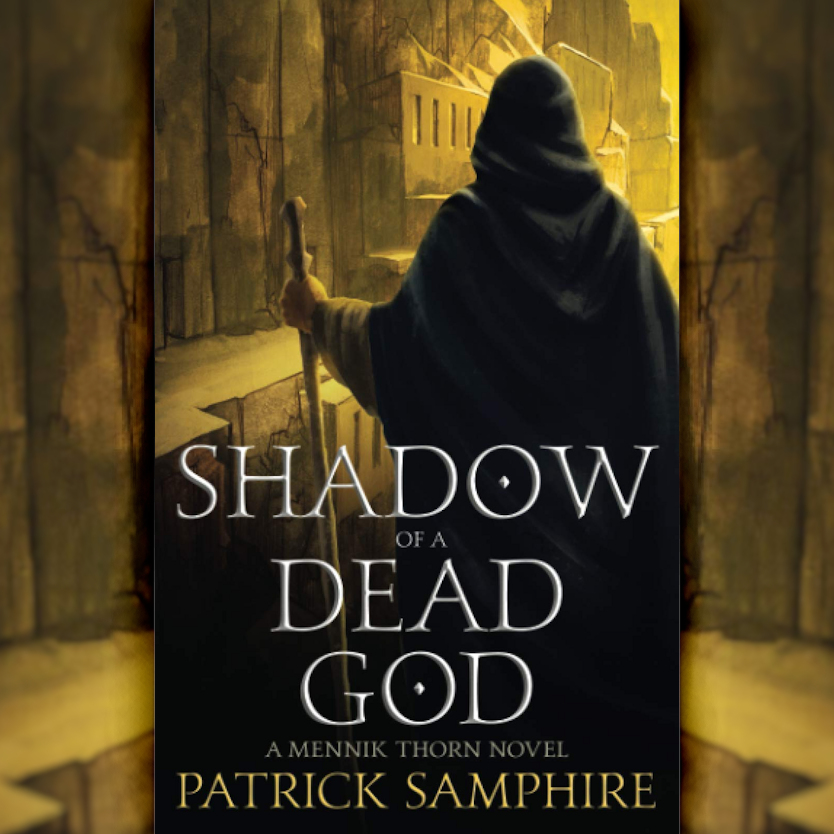
– – –
Our judges are A. M. Justice, Alicia Wanstall-Burke, Amanda Cenker, Julia Kitvaria Sarene, Kartik Narayanan, Kerry Smith, Lynn Kempner, and Mariëlle Ooms-Voges. If you’d like to learn more about us, including our likes and dislikes, you can read about them here.
Any queries should be directed to A. M. Justice via DM (Facebook/Twitter).
Title image by Hermann Traub.

